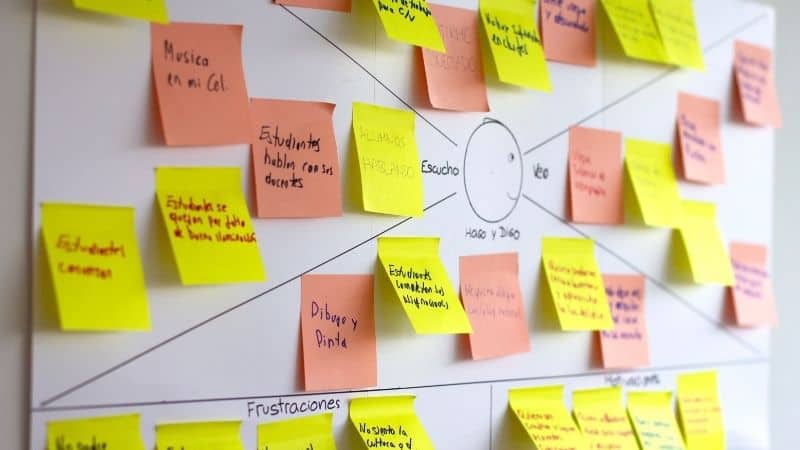Let’s talk about Completed Staff Work (CSW). You might think it’s just another fancy term, but it’s much more than that. It’s a powerful approach that can transform how organizations operate.
Why Completed Staff Work Works
CSW is all about delivering fully thought-out solutions to problems. Here’s how it works: a staff officer studies a problem thoroughly, finds the best solution, and presents it in a way that the boss only needs to approve or disapprove. Simple, right? But it’s incredibly effective. It cuts down the back-and-forth, saves time, and ensures decisions are well-informed and well-prepared.
Why Completed Staff Work Is a Must
Many government organizations today are looking for training programs in Completed Staff Work. There are only a few providers for this kind of training. And most of them are very expensive.
Below, I will share why it is a must-have. It is one of the best benefits a government employee may receive for it will make them very valuable public servants.
I do understand that there are still misconceptions about it. I heard an Undersecretary who tried to explain Completed Staff Work as a completed memo. She said that in Completed Staff Work, the grammar, fonts, and visuals are all in order.
I wonder if these are all they got from their “expensive” training. They can learn all of these in a business writing course, but this is not Completed Staff Work.
Complete Staff Work is a management tool that ensures all necessary information and actions are fully prepared before they reach decision-makers.
The essence of Complete Staff Work is to prepare decisions and actions so thoroughly that all a leader needs to do is approve them.
It requires you to think, solve, and present like your great boss.
So, let me share ten reasons why it is a must-have training for government employees who want to add value.

1. Improved Efficiency
Government processes are often slow due to numerous layers of bureaucracy and the tendency to pass unfinished work up the chain of command.
CSW can revolutionize this by ensuring that staff officers present complete solutions to their superiors. This means less back-and-forth communication and quicker decision-making processes.
For instance, when a public health issue arises, a complete staff work approach would ensure that all research, potential solutions, and impacts are thoroughly analyzed and presented in one comprehensive report. This allows for swift action, which is crucial in time-sensitive situations like disease outbreaks.
By adopting CSW, departments can streamline their operations. Employees will spend less time seeking approvals and more time implementing effective solutions. This increased efficiency can lead to significant improvements in public service delivery, benefiting the citizens directly.
Great leadership isn’t an event—it’s a habit. Get actionable leadership habits every Monday and Thursday.
2. Better Problem Solving
CSW training equips public servants with the skills to analyze and solve problems thoroughly.
Instead of merely identifying problems, employees learn to delve deep into the root causes and develop comprehensive solutions. This leads to more effective and sustainable outcomes.
For example, in addressing traffic congestion, a CSW-trained team wouldn’t just recommend building more roads. They would analyze data on traffic patterns, consider alternative transportation methods, and present a multifaceted solution that might include public transportation improvements, carpool incentives, and road infrastructure enhancements.
This thorough approach ensures that solutions are not just quick fixes but are well-considered strategies that address the underlying issues, leading to long-term benefits for the community.
3. Enhanced Decision Making
Decision-makers in government often face a barrage of incomplete information, making it difficult to make informed choices. CSW ensures that staff provides all necessary details, backed by thorough analysis so that decisions can be made confidently and quickly.
Consider the budgeting process. When staff officers present a budget proposal that includes detailed justifications, projected impacts, and alternative options, it simplifies the decision-making process for higher-ups. They can approve or modify the proposal with a clear understanding of its implications.
This clarity not only speeds up decision-making but also improves the quality of decisions, as they are based on comprehensive and accurate information, reducing the risk of errors and misjudgments.
4. Increased Accountability
Complicated Staff Work makes it clear who is responsible for what.
When a staff officer is tasked with presenting a complete solution, they own the problem from start to finish. This fosters a culture of accountability, as each officer is responsible for the thoroughness and accuracy of their work.
For instance, if a public works project goes over budget, it’s easy to trace back to the planning stage where the incomplete staff work may have occurred. This accountability ensures that staff members are diligent and meticulous in their duties. Increased accountability leads to higher standards of work, as employees know their work will be scrutinized and they are directly responsible for the outcomes.
This can significantly reduce instances of negligence and oversight.
5. Consistency in Work Quality
Training all employees in CSW ensures a uniform standard of work quality across the organization. This consistency is crucial in maintaining reliability and trust in public services.
For example, in regulatory bodies, consistent application of CSW principles ensures that all regulatory decisions are based on thorough analysis and complete information, leading to fair and reliable outcomes.
When every staff member adheres to the same high standards, it not only improves the internal functioning of the organization but also enhances its reputation among the public and other stakeholders.
6. Boosted Confidence and Morale
Employees who are equipped to solve problems and present solutions feel more empowered and valued in their roles. This boosts their confidence and morale, leading to higher job satisfaction and productivity.
For instance, a government employee who successfully handles a complex project from start to finish, thanks to CSW training, gains a sense of accomplishment and pride in their work. This positive experience encourages them to take on more challenging tasks in the future.
High morale and confidence among employees translate to better performance, as motivated staff are more likely to go above and beyond in their duties, contributing to the overall success of the organization.
7. Effective Communication
One of the key benefits of CSW is improved communication. Clear, concise, and complete presentations mean that decisions are understood and implemented correctly, reducing errors and rework.
For example, in disaster response scenarios, clear communication is crucial. A CSW-trained team can present a comprehensive action plan that outlines every step, ensuring all stakeholders are on the same page and can act swiftly and efficiently.
Effective communication not only enhances internal operations but also improves interactions with the public, as clear and accurate information is essential for maintaining trust and transparency.
8. Critical and Creative Thinking
CSW training encourages employees to think critically and creatively about problems. This leads to innovative solutions that can address public service challenges in new and effective ways.
For instance, in urban planning, a CSW approach might lead to the development of green spaces and smart city initiatives that improve the quality of life for residents while addressing environmental concerns.
Encouraging a mindset of critical and creative thinking helps employees break out of traditional ways of doing things, fostering a culture of innovation that can drive significant improvements in public services.
9. Resource Optimization
Efficient problem-solving and decision-making through CSW save time and resources. These savings can be redirected to other essential tasks, enhancing the overall productivity of the organization.
For example, a well-thought-out procurement process can prevent wastage and ensure that public funds are used efficiently, leading to better service delivery without additional costs.
By optimizing resources, government agencies can do more with less, improving their ability to serve the public effectively even in times of budget constraints.
10. Public Trust and Satisfaction
Efficient and effective public service boosts the public’s trust in government institutions. When citizens see that their government is capable of solving problems and delivering services efficiently, their confidence and satisfaction increase.
For instance, timely and well-executed infrastructure projects, facilitated by thorough CSW, can significantly improve public perception of government efficiency and reliability. Building public trust is essential for a healthy democratic society.
When the public has confidence in their government, it fosters a more cooperative and supportive community, facilitating better governance and societal progress.
The Impact on Organizations
In any organization, efficiency is key. CSW streamlines decision-making. When the boss doesn’t have to dig through incomplete reports or make sense of half-baked ideas, things move faster.
Quality decisions are another benefit. When solutions are well-thought-out and backed by solid analysis, decisions are better. They’re based on facts, not guesswork.
CSW also empowers staff. It encourages them to think deeply and take ownership of problems. This builds confidence and competence.
Better communication is another outcome. Clear, concise, and complete presentations mean fewer misunderstandings and better implementation of decisions.
Finally, CSW is a huge time-saver. When staff officers present complete solutions, it saves the boss’s time, allowing them to focus on strategic issues.
Read: 8 Principles of Completed Staff Work
Customized CSW Training for Government Employees
At Strategic Learning Consultants Inc., we specialize in customized Completed Staff Work training tailored to the needs of government employees.
Our training focuses on the core elements of CSW: thinking, solving, and presenting. We use real-life examples, interactive workshops, and practical exercises to ensure our training is engaging and impactful.
Ready to transform your team’s problem-solving skills? Explore how our customized Completed Staff Work training can benefit your organization. Schedule a discovery call using the contact form on our website.
Let’s work together to make our public servants more efficient, effective, and empowered.
For more information and to schedule a discovery call, visit our website and fill out the contact form.
Let’s make decision-making easy and effective with Completed Staff Work!
Completed Staff Work Training: Turn Your Team into Problem Solvers, Not Problem Bringers
Tired of micromanaging, fixing mistakes, and handling work your team should’ve nailed the first time? It’s time for a change.
The Completed Staff Work Training transforms your staff into proactive problem-solvers who bring you solutions, not headaches. No more hand-holding. Just fully-formed, actionable ideas that are ready for your green light.
Get your team to step up, think critically, and deliver the results you need.







